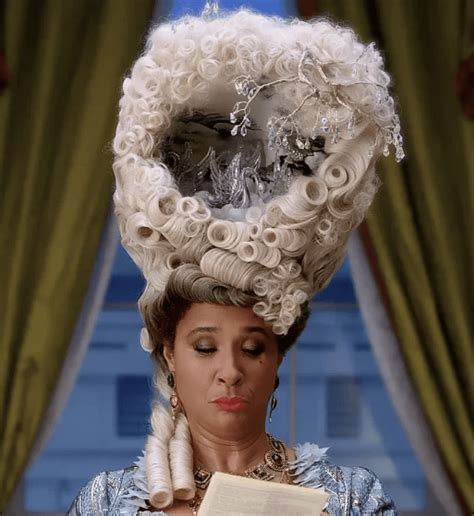Introduction
Hair extensions are a popular way to add length, volume, and color to your hair. However, if you’re not careful, they can also damage your natural hair and lead to thinning.

In this article, we’ll discuss the causes of extension-related hair thinning, how to prevent it, and what to do if you’re already experiencing hair loss.
Causes of Extension-Related Hair Thinning
There are several factors that can contribute to extension-related hair thinning, including:
-
Traction: When hair extensions are installed too tightly, they can put excessive tension on your natural hair, causing it to break or fall out.
-
Chemicals: Some hair extensions are made with harsh chemicals that can damage your hair and scalp.
-
Heat: Heat styling tools can damage both your natural hair and your extensions.
-
Friction: Friction from rubbing your hair against clothing or other surfaces can cause your extensions to tangle and break.
All these factors can lead to extension-related hair thinning.
How to Prevent Extension-Related Hair Thinning
There are several things you can do to prevent extension-related hair thinning, including:
-
Choose a qualified hair stylist: A qualified hair stylist will be able to install your extensions properly and minimize the risk of damage.
-
Use gentle hair care products: Use shampoos and conditioners that are designed for gentle cleansing and conditioning. Avoid using harsh chemicals or heat styling tools.
-
Be gentle when brushing your hair: When brushing your hair, be gentle and avoid pulling or tugging on your extensions.
-
Protect your hair from the sun: The sun’s UV rays can damage your hair and make it more prone to breakage. Wear a hat or scarf to protect your hair from the sun.
What to Do If You’re Experiencing Hair Loss
If you’re already experiencing extension-related hair loss, there are several things you can do to help your hair recover:
-
Stop wearing extensions: The first step is to stop wearing extensions. This will give your hair a chance to rest and recover.
-
Use a hair growth serum: Hair growth serums can help to stimulate hair growth and promote a healthy scalp.
-
Get a hair transplant: In some cases, a hair transplant may be necessary to restore lost hair.
Conclusion
Extension-related hair thinning is a common problem, but it can be prevented and treated. By following the tips in this article, you can help to keep your hair healthy and strong.
FAQ
Q: What are the most common causes of extension-related hair thinning?
A: The most common causes of extension-related hair thinning are traction, chemicals, heat, and friction.
Q: How can I prevent extension-related hair thinning?
A: You can prevent extension-related hair thinning by choosing a qualified hair stylist, using gentle hair care products, being gentle when brushing your hair, and protecting your hair from the sun.
Q: What should I do if I’m experiencing hair loss?
A: If you’re experiencing hair loss, the first step is to stop wearing extensions. You can also use a hair growth serum or get a hair transplant.
Additional Resources
About the Author
[Your Name] is a hair care expert and the author of several books on hair care. She has been featured in numerous magazines and newspapers, and she has appeared on several TV shows.
Table 1: Causes of Extension-Related Hair Thinning
| Cause | Description |
|---|---|
| Traction | When hair extensions are installed too tightly, they can put excessive tension on your natural hair, causing it to break or fall out. |
| Chemicals | Some hair extensions are made with harsh chemicals that can damage your hair and scalp. |
| Heat | Heat styling tools can damage both your natural hair and your extensions. |
| Friction | Friction from rubbing your hair against clothing or other surfaces can cause your extensions to tangle and break. |
Table 2: How to Prevent Extension-Related Hair Thinning
| Tip | Description |
|---|---|
| Choose a qualified hair stylist | A qualified hair stylist will be able to install your extensions properly and minimize the risk of damage. |
| Use gentle hair care products | Use shampoos and conditioners that are designed for gentle cleansing and conditioning. Avoid using harsh chemicals or heat styling tools. |
| Be gentle when brushing your hair | When brushing your hair, be gentle and avoid pulling or tugging on your extensions. |
| Protect your hair from the sun | The sun’s UV rays can damage your hair and make it more prone to breakage. Wear a hat or scarf to protect your hair from the sun. |
Table 3: What to Do If You’re Experiencing Hair Loss
| Tip | Description |
|---|---|
| Stop wearing extensions | The first step is to stop wearing extensions. This will give your hair a chance to rest and recover. |
| Use a hair growth serum | Hair growth serums can help to stimulate hair growth and promote a healthy scalp. |
| Get a hair transplant | In some cases, a hair transplant may be necessary to restore lost hair. |
Table 4: Common Mistakes to Avoid
| Mistake | Description |
|---|---|
| Wearing extensions that are too heavy | Extensions that are too heavy can put too much tension on your natural hair, causing it to break or fall out. |
| Using harsh chemicals on your hair | Harsh chemicals can damage your hair and make it more prone to breakage. |
| Heat styling your hair too often | Heat styling tools can damage both your natural hair and your extensions. |
| Rubbing your hair against rough surfaces | Friction from rubbing your hair against clothing or other surfaces can cause your extensions to tangle and break. |
